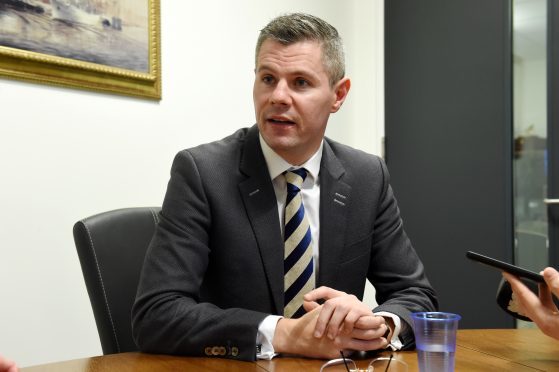A leading accountancy body has warned the Scottish Government to begin preparations for public spending cuts in the aftermath of Brexit.
The Chartered Institute of Public Finance and Accountancy (CIPFA) has predicted Brexit is likely to have a negative impact on public spending power.
Head of CIPFA Scotland Don Peebles called for the UK Government to listen more closely to Scotland’s needs during negotiations and for the Scottish Government to anticipate cuts.
He said: “Scottish public spending power is significantly vulnerable to the impacts of Brexit.
“As it is likely that many of the fiscal risks predicted will be realised in future years, the Scottish Government must begin to budget for Brexit, so that it will be in the best position to sustain any financial shocks.
“Considering the impact of Brexit may be keenly felt in Scotland, it is important the Scottish Government has an influence on the negotiations to ensure any Brexit deal works for its public services.”
CIPFA’s Brexit Advisory Commission for Public Services, comprised of public service leaders, academics and economists, will release analysis later this year which will include recommendations on how best EU funding could be replaced to bridge divides in regional inequalities between devolved nations.
Scottish Finance Secretary Derek Mackay argued the report highlighted the need for Scotland to have a seat at the Brexit negotiation table.
He added: “This report further highlights the danger posed by the UK Government’s extreme Brexit plans, which threaten jobs, investment and living standards.
“Leaving the European single market and customs union threatens 80,000 Scottish jobs over a decade and could cost our economy more than £11billion a year by 2030.
“We welcome this report’s view – supported by many others, including leading business voices – that the Scottish Government should have a direct role in Brexit negotiations, and we will continue to press the UK Government.”
However, Aberdeenshire West MSP Alexander Burnett, who sits on Holyrood’s finance committee, responded the report might be jumping the gun.
He said: “While the CIPFA report speculates there may be future fiscal shocks for Scotland, it comes with an important caveat that the process for withdrawal from the EU is still in its early stages.
“The key point is that what happens in terms of Scotland’s budget is very much dependent on the outcome of these negotiations and what the UK’s future relationship with the EU will be.
“We have already seen, for example, the Home Office outlining measures that would allow continued access to EU migrant labour for industries that need it.
“That will be one of many areas that will be of particular importance to the north east of Scotland.”
